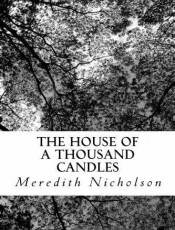when i began, with the devil's pool, a series of rustic pictures which i proposed to collect under the title of the hemp-beater's tales, i had no theory, no purpose to effect a revolution in literature. no one can bring about a revolution by himself alone, and there are revolutions, especially in matters of art, which mankind accomplishes without any very clear idea how it is done, because everybody takes a hand in them. but this is not applicable to the romance of rustic manners: it has existed in all ages and under all forms, sometimes pompous, sometimes affected, sometimes artless. i have said, and i say again here: the dream of a country-life has always been the ideal of cities, aye, and of courts. i have done nothing new in following the incline that leads civilized man back to the charms of primitive life. i have not intended to invent a new language or to create a new style. i have been assured of the contrary in a large number of feuilletons, but i know better than any one what to think about my own plans, and i am always astonished that the critics dig so deep for them, when the simplest ideas, the most commonplace incidents, are the only inspirations to which the products of art owe their being. as for the devil's pool in particular, the incident that i have related in the preface, an engraving of holbein's that had made an impression upon me, and a scene from real life that came under my eyes at the same moment, in sowing time,—those were what impelled me to write this modest tale, the scene of which is laid amid humble localities that i used to visit every day. if any one asks me my purpose in writing it, i shall reply that i desired to do a very simple and very touching thing, and that i have not succeeded as i hoped. i have seen, i have felt the beautiful in the simple, but to see and to depict are two different things! the most that the artist can hope to do is to induce those who have eyes to look with him. therefore, my friends, look at simple things, look at the sky and the fields and the trees and the peasants, especially at what is good and true in them: you will see them to a slight extent in my book, you will see them much better in nature.
george sand.
nohant, april 12, 1851.
